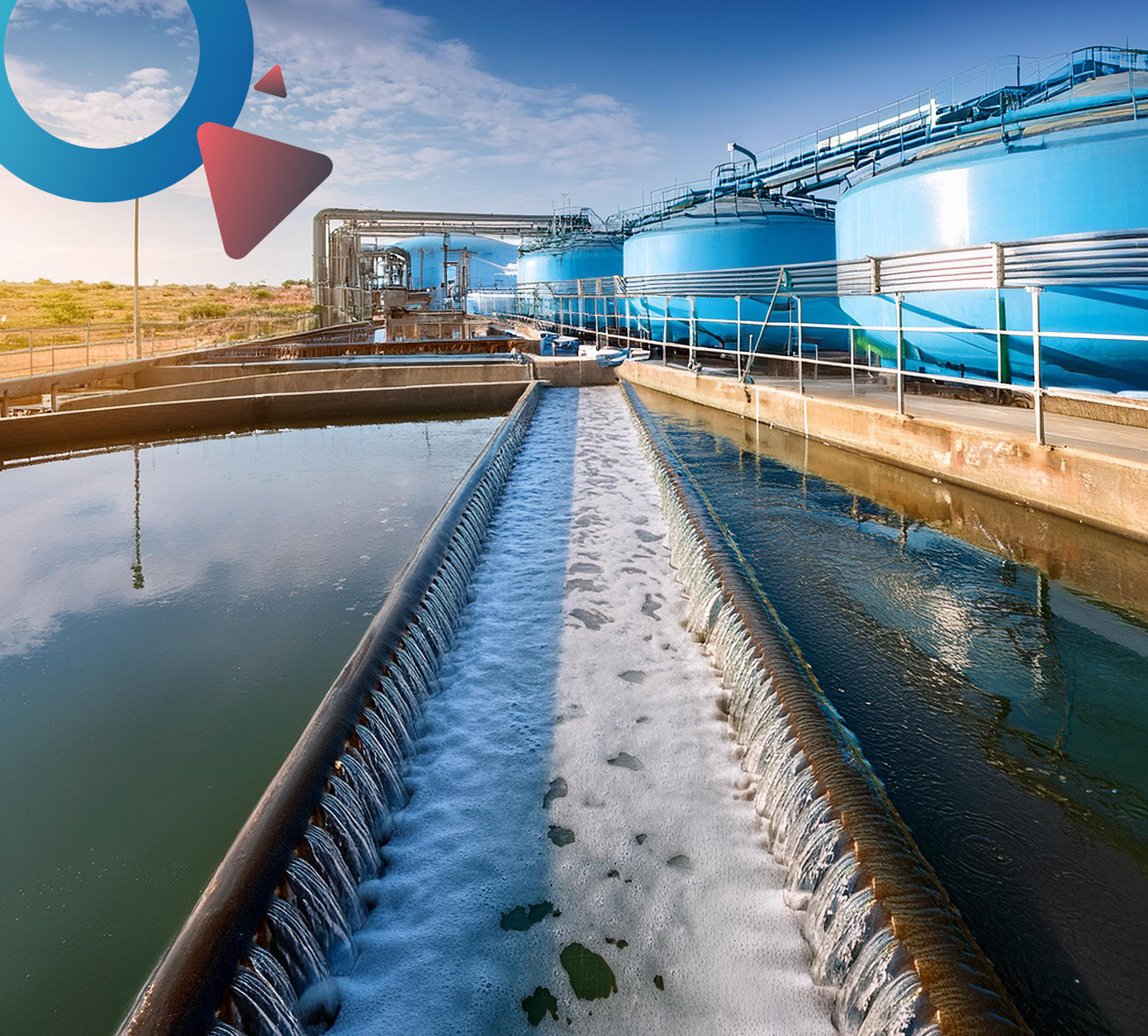Coagulants
Your trusted partner in achieving optimal water and wastewater treatment

Solution Overview
Coagulants play a crucial role in the removal of suspended solids, turbidity, and other contaminants from water, ensuring clarity and safety. Our range of high-performance coagulants is designed to meet the diverse needs of municipal, industrial, and environmental applications. With a commitment to quality and innovation, we provide effective solutions that enhance coagulation and flocculation processes, improve operational efficiency, and support regulatory compliance. Explore our coagulant products and discover how we can help you achieve superior water quality and sustainable treatment outcomes.
What We Do

Aluminum-based Coagulants
Aluminum Sulfate (Alum): One of the most commonly used coagulants, alum forms aluminum hydroxide floc when added to water, facilitating theremoval of suspended particles and impurities.
Polyaluminum Chloride (PAC):
A more efficient alternative to alum, PAC consists of aluminum-based polymers that form larger, denser flocs for enhanced sedimentation and filtration.
Iron-based Coagulants
Ferric Chloride: An iron-based coagulant that forms iron hydroxide floc, which effectively removes suspended solids, phosphates, and heavy metals from water.
Ferrous Sulfate: Often used in conjunction with lime, ferrous sulfate forms iron hydroxide floc and aids in the removal of turbidity, color, and organic matter from water.
Inorganic Salts
Ferrous Sulfate: While primarily used as an iron-based coagulant, ferrous sulfate can also function as a coagulant aid when combined with other coagulants like alum or ferric chloride.
Calcium Hydroxide (Lime): Often used as a coagulant aid, lime raises the pH of water and promotes the precipitation of impurities, aiding in
coagulation and sedimentation processes.
Composite Coagulants
Mixed-metal Hydroxides: Formulated from combinations of aluminum,iron, and other metals, mixed-metal hydroxides offer improved coagulation performance and can be tailored to specific water treatment needs.
Polymeric-metal Coagulants: These hybrid coagulants combine polymeric and metallic components to achieve enhanced floc formation and settling characteristics.
Specialty Coagulants
Silicate-based Coagulants: Silicate compounds, such as sodium metasilicate or sodium alumino-silicate, are sometimes used as coagulants in specific applications, particularly in wastewater treatment and industrial processes.
Zirconium-based Coagulants: Zirconium salts, like zirconium oxychloride or zirconium sulfate, offer superior coagulation performance and are used in
niche applications where traditional coagulants may be less effective.
Acumen Coagulants (PAC OR ACH BLEND)
R0T0
R1T1
R2T2
R3T3
R4T4
R5T5
ACU9000
Sector Usage

Industrial Sector
Water Treatment: Coagulants are used in industrial water treatment processes to remove suspended solids, turbidity, and contaminants from wastewater generated by industrial operations. This ensures
compliance with environmental regulations and reduces the environmental impact of industrial discharges.
Process Optimization: Coagulants may be utilized in various industrial processes, such as chemical manufacturing, pulp and paper production, and textile dyeing, to improve process efficiency, product quality, and wastewater treatment.
Agricultural Sector
Irrigation Water Treatment: Coagulants are applied in agricultural water treatment to remove suspended solids, organic matter, and pathogens from irrigation water, ensuring the quality and safety of water used for crop irrigation.
Livestock Farming: Coagulants may be used in livestock farming operations to treat wastewater from animal husbandry activities, reducing nutrient runoff and environmental pollution.
Food and Beverage Sector
Process Water Treatment: Coagulants are used in the food and beverage industry for the treatment of process water, including water used in beverage production, food processing, and sanitation processes. Coagulants help remove suspended solids, organic matter, and contaminants, ensuring the quality and safety of food and beverage products.
Wastewater Treatment: Coagulants are applied in wastewater treatment processes in food and beverage manufacturing facilities to remove pollutants and organic matter from wastewater before discharge or reuse.
Hospitality Sector
Water Treatment: Coagulants may be used in hospitality facilities, such as hotels, resorts, and restaurants, for the treatment of water used in swimming pools, spa facilities, and water features. Coagulants help clarify and disinfect water, ensuring a safe and enjoyable experience for guests.
Wastewater Management: Coagulants are employed in wastewater management systems in hospitality establishments to treat wastewater generated from guest activities, kitchen operations, and laundry facilities, reducing environmental impact and regulatory compliance risks.
Mining Sector
Wastewater Treatment: Coagulants are employed in mining wastewater treatment to remove suspended solids, heavy metals, and other
contaminants from mine effluents before discharge into the environment. This helps mitigate the environmental impact of mining activities and ensures compliance with regulatory requirements.
Tailings Management: Coagulants may be used in the management of mining tailings to facilitate sedimentation and dewatering, reducing the volume of tailings and minimizing the risk of environmental
contaminat
